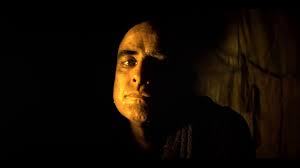Note: If you wish to receive, via e-mail, (1) my weekly newsletter or (2) daily copies of these posts, write to me at rrbates1951@gmail.com. Comments may also be sent to this address. I promise not to share your e-mail with anyone. To unsubscribe, write here as well.
Monday
Greg Olear of the Substack blog Prevail has written another fine essay, this one on Heart of Darkness. While acknowledging the legitimacy of Nigerian novelist Chinua Achebe’s critique—that the novella does a lousy job of depicting Africans—Olear doesn’t want us to overlook Conrad’s main target: white greed.
Olear points out that Conrad makes a point of emphasizing Kurtz’s whiteness:
Kurtz is a full seven feet of skeletal whiteness, topped off by a shiny white cueball of a pate. He is ivory incarnate. He is, in short (kurzum in German), the whitest white man in all of Africa—and also the most evil. Conrad equates the two qualities deliberately. [Kurtz’s fiancé] talks about Kurtz’s “goodness,” and no doubt Kurtz had that in some supply before he left. But by the time we meet him, all of that has evaporated. What remains is a bleached-out husk of pure horrific evil.
White greed, Olear then notes, is currently attempting to ruin America as it once ruined Africa:
Reading the book in 2025, I think only of our current iteration of this kind of white man, brilliant but misguided and irreparably damaged, in this imperial nation vaster and more powerful than Belgium could ever have dreamt of being. Like Kurtz they are white supremacists. Like Kurtz they are men of talent. Like Kurtz they engage in unspeakable acts….Like Kurtz they enjoy the undeserved protection of corporations and governments. And like Kurtz they are driven mad with greed. The accumulation of assets is more important to them than anything: love, sex, art, creativity, fame, faith, hope, charity, decency, respect, community, God, the future of humanity—anything.
Then, in a passage referencing South Africa born-and-raised Elon Musk, Olear asks,
How can we read Heart of Darkness today and not think of the disgustingly wealthy white men from Africa hellbent on destroying our country and the world for their own material gain?
Olear makes one other unsettling application: the novel begins with an allusion to the sun setting on the British Empire, which in Conrad’s day was the most powerful nation on earth.
[T]he dusk fell on the stream, and lights began to appear along the shore. The Chapman lighthouse, a three-legged thing erect on a mud-flat, shone strongly. Lights of ships moved in the fairway—a great stir of lights going up and going down. And farther west on the upper reaches the place of the monstrous town was still marked ominously on the sky, a brooding gloom in sunshine, a lurid glare under the stars.
In response to this scene Marlow reflects, “And this also has been one of the dark places of the earth.”
Perhaps thinking of the Pax Americana that has held since World War II, Olear concludes,
Conrad is trying to warn us: We live in the flicker. Darkness was here yesterday. There’s no guarantee it won’t return tomorrow.


